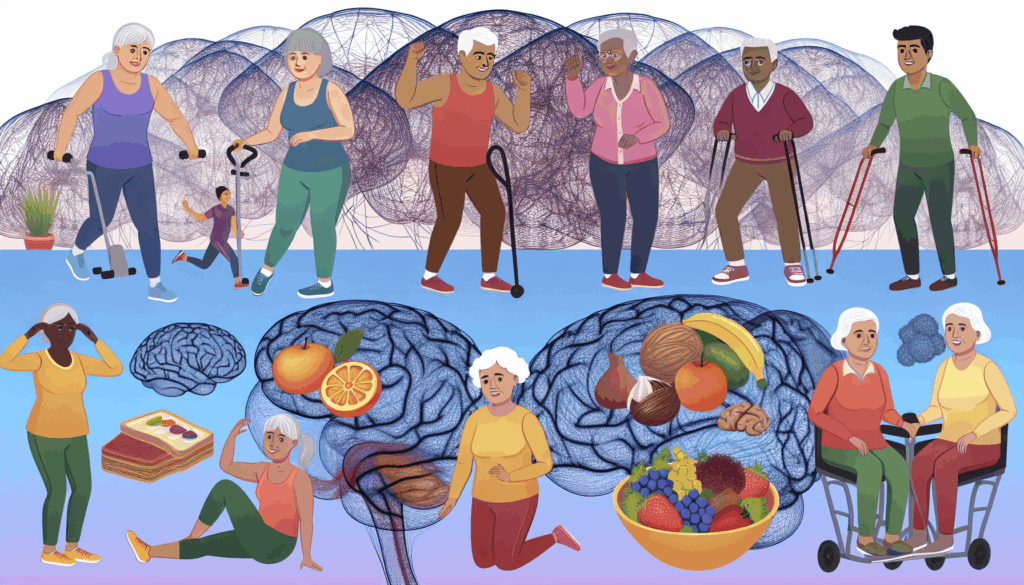It’s not a secret that maintaining a healthy lifestyle becomes even more crucial as we age. This emphasis on health does not merely concern our physical health, but also our mental and emotional wellness. In this blog post, we will talk about the importance of maintaining brain health for elderly individuals, focusing particularly on activities and habits that can help mitigate the impacts of cognitive decline, Alzheimer’s, and other related conditions.
Maintaining Brain Health: Why It’s Important
Brain health contributes significantly to our overall well-being and quality of life. It is our brain that drives our ability to learn, communicate, make decisions, and maintain emotional control. As we age, our brain naturally starts to change, which can lead to memory loss and decreased cognitive function. However, these changes are not inevitable. By engaging in activities and maintaining healthy habits, we can protect our brains from age-related cognitive decline.
Activities to Boost Brain Health
1. Regular Exercise
Physical activity is beneficial for brain health at any age, but it can be particularly beneficial for seniors. Regular exercise increases blood flow to the brain and stimulates the growth of new brain cells. It also helps reduce the risk of developing conditions such as heart disease, diabetes and stroke, which could potentially harm the brain.
2. Mental Stimulation
Engaging in mentally stimulating activities such as reading, writing, puzzles and playing musical instruments can help keep the brain active and healthy. These activities can challenge and stimulate the brain, enhancing its capacity to process and recall information.
3. Social Interaction
Socializing regularly can also help protect the brain. Joining a club, volunteering, or even engaging in a simple conversation with friends and family can provide the mental stimulation needed to keep cognitive functions sharp.
Maintaining a Healthy Lifestyle
Apart from the above activities, maintaining a healthy lifestyle can also contribute greatly to brain health. This entails a balanced diet rich in fruits, vegetables, lean protein, and whole grains, which all contribute to brain health. It also involves maintaining a regular sleep cycle, as sleep deprivation can hamper cognitive function and lead to confusion and memory loss.
Final Thoughts
Maintaining a healthy brain is a crucial aspect of overall wellness, particularly for seniors. While age-related cognitive changes are normal, they can be slowed or even reversed through regular exercise, mentally stimulating activities, social interaction, and a healthy lifestyle. The journey of maintaining brain health is a lifelong commitment but is undeniably rewarding.
Remember, our brain health is in our hands. Let’s take the steps today to ensure a healthier and happier tomorrow.



